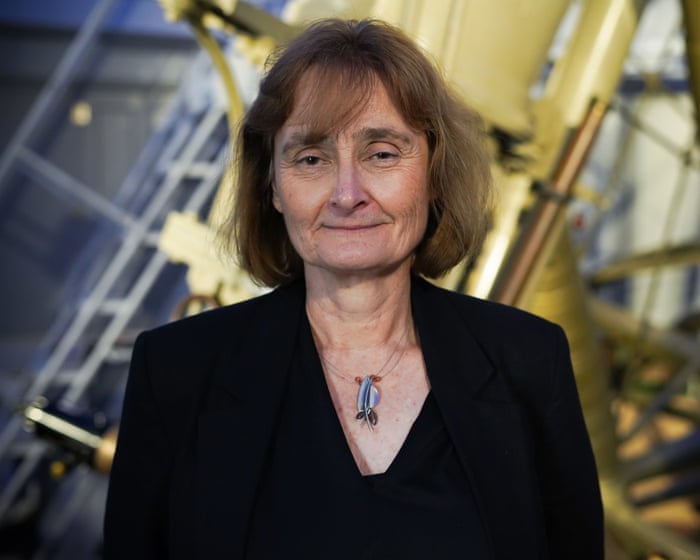The UK’s new astronomer royal, Professor Michele Dougherty, has defended the Royal Society’s decision to keep Elon Musk as a fellow, saying private sector involvement in space exploration brings benefits.
Speaking to The Guardian after becoming the first woman to hold the 350-year-old title, the planetary scientist said she wasn’t part of the discussions about Musk’s fellowship but supported the academy’s position.
“The outcome of those meetings, based on emails I’ve seen, is that he remains a fellow because the reasons for his appointment haven’t changed,” Dougherty said. When asked if she agreed with the decision, she replied, “Yes, I do.”
Musk was elected a Royal Society fellow in 2018 for his contributions to space and electric vehicle industries. However, over the past year, many scientists have called for action, arguing Musk violated the academy’s code of conduct—including through his past leadership of the U.S. government efficiency department (Doge).
In July, The Guardian revealed the Royal Society had contacted Musk, suggesting he consider resigning if he couldn’t address concerns about the Trump administration’s attacks on research. Musk didn’t respond, and the society took no further action.
Musk remains active in space through SpaceX, which aims to colonize Mars and currently transports people and cargo to the International Space Station. Fellow billionaire Jeff Bezos is also developing rockets via Blue Origin.
Dougherty, 62, praised private sector involvement in space exploration. “There are real positives—it accelerates advancements in instrumentation and launches that would move much slower with only government funding,” she said, adding that the UK space sector and new companies also boost the economy.
She called for clearer focus on priorities but admitted being impressed by Musk’s reusable rocket technology. “When I saw them catching the rocket boosters, the hair on my arms stood up. It’s spectacular,” she said.
While NASA and the European Space Agency (ESA) also have Mars ambitions, Dougherty has no desire to go to space herself. “I’ve never wanted to be an astronaut—I’m not brave enough. If something went wrong, I wouldn’t know what to do. I prefer sending instruments to explore for me,” she said.
Dougherty worked on the Cassini mission, which transformed our understanding of Saturn and its moons. Her magnetometer data helped discover water plumes erupting from Enceladus, suggesting it could support life. She now leads the magnetometer team for ESA’s Juice mission, currently en route to study Jupiter and its moon Europa, which may hide a salty ocean beneath its ice.Another potential candidate for hosting life is Enceladus. Dougherty, who grew up in South Africa, explained that a major breakthrough in the search for extraterrestrial life came when scientists discovered bacteria thriving in the extreme conditions of Earth’s deep oceans. “That’s exactly the type of life I’d be shocked not to find elsewhere in our solar system,” she said. “But I’m not talking about little green men.”
As the newly appointed astronomer royal, Dougherty hopes to inspire the public—especially children—by sharing the work of scientists and the thrill of discovery. “Humans are natural explorers,” she said. “If we ever stop exploring, we’ll have lost something essential about who we are.”
How to contact us about this story
The best journalism comes from people with firsthand knowledge. If you have information to share on this topic, you can reach us confidentially through these methods:
– Secure Messaging in the Guardian app:
Download the Guardian app (iOS/Android), go to the menu, and select “Secure Messaging.” Messages are end-to-end encrypted and hidden within normal app activity, making it impossible for anyone to detect you’re contacting us.
– Other options:
For alternatives like SecureDrop, email, phone, or post, visit theguardian.com/tips to see a full guide with pros and cons.
Illustration: Guardian Design / Rich Cousins
Was this helpful? Thank you for your feedback.



